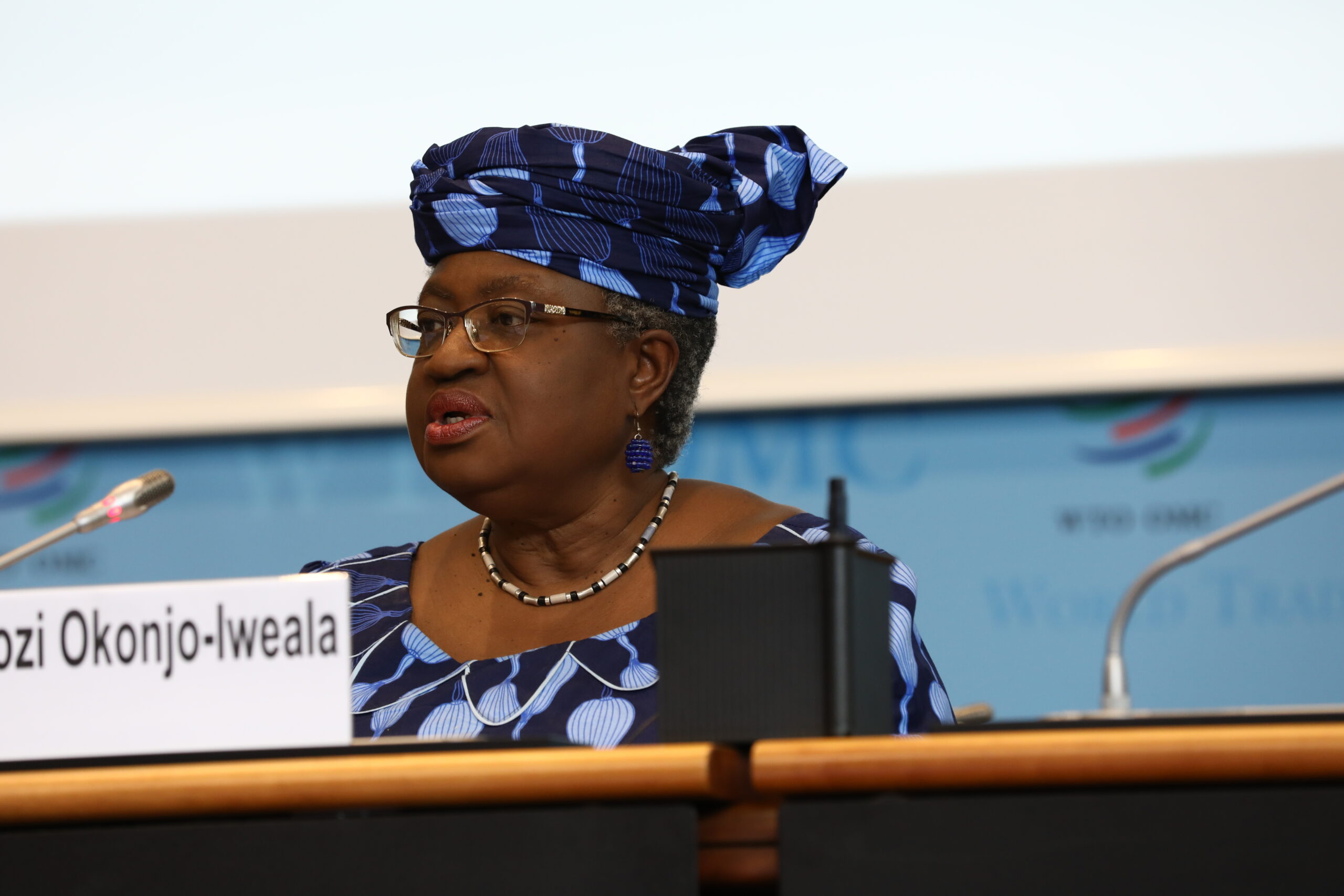
First Woman and African Director-General of the WTO
Josefine Flesch is a student in the Peace, Humanitarian Action and Development Masters program at Sciences Po Lille. She specializes in the study of human rights and gender equality.
Dr. Ngozi Okonjo-Iweala, a distinguished global finance expert and economist, made history in 2021 as the first woman and first African to assume the position of Director-General at the World Trade Organization (WTO).
Empowering Women and Nations: Dr. Ngozi Okonjo-Iweala’s Distinguished Path to Success
Dr. Ngozi Okonjo-Iweala, born in 1954 in a small village in southern Nigeria, witnessed the Biafra War. At 19, she pursued studies in the United States, earning multiple degrees. She graduated magna cum laude with an A.B. in Economics from Harvard University in 1977 and obtained a PhD in Regional Economics and Development from the Massachusetts Institute of Technology (MIT) in 1981.
She made history as Nigeria’s Finance Minister twice (2003-2006 and 2011-2015) and briefly served as the country’s Foreign Affairs Minister in 2006, being the first woman to hold both positions. Dr. Okonjo-Iweala implemented major reforms during her tenures, notably reducing Nigeria’s debt by $30 billion. Her illustrious 25-year career at the World Bank included serving as Managing Director. She has also been active on several boards, including Twitter, and chaired the Board of Gavi, the Vaccine Alliance. Author of several books, in 2020 she released « Women and Leadership: Real Lives, Real Lessons » with Julia Gillard. Dr. Ngozi Okonjo-Iweala has received numerous awards, including the 2023 Global Economy Prize from the Kiel Institute for the World Economy.
The 7th Director-General of the WTO: Pioneering as the First Woman and First African Leader
Dr. Ngozi Okonjo-Iweala’s expertise and knowledge as a global finance expert and economist stems from her professional experience of over 40 years around the world. Renowned as a skilled negotiator, she has a track record of successful negotiations and a wealth of professional expertise. She took on the role of Director-General of the World Trade Organization (WTO) on March 1, 2021, following an extensive selection process. Her tenure is set to conclude at the end of August 2025. She holds the distinction of being the first woman and first African to lead the organization and is recognized as one of the world’s most influential individuals. Some argue that her appointment addresses a crucial issue facing the WTO by promoting a more equitable trading system, while others highlight the challenges faced by the organization. The WTO, established in 1995, operates as a politically based framework for member countries. Built on the foundation of multilateral trade policies and the principles of liberalization, tempered by allowable exceptions, the WTO is governed by representatives of member countries.
With 164 members since 2016, the WTO faces controversies. Critics argue that the increasing number of participants adds complexity to decision-making, since each country has a right of veto. The future of the WTO, some contend, hinges on the political will of member states. Dr. Ngozi Okonjo-Iweala’s leadership brings hope for addressing these challenges and steering the WTO toward a more inclusive and effective future.
Deep Controversies and Challenges at the WTO: Pandemic, Geopolitics, Ecology, and Structural Issues
In the WTO Annual Report 2023, Dr. Okonjo-Iweala remarked: “The past year was another tumultuous one for the world economy and for global trade. Even as the COVID-19 pandemic began to recede, the international community was tested by one crisis after another, from persistent inflation to climate shocks, food insecurity, and both civil and interstate conflict. Despite the shadow cast by rising geopolitical tensions, trade has proved itself to be a force for resilience and recovery.”
Indeed, Dr. Ngozi Okonjo-Iweala assumed the position amid challenging times, addressing the role of the WTO in the context of the Covid-19 pandemic and other pressing issues. The Covid-19 impact on trade and economic growth is evident, coupled with structural challenges within the WTO and the imperative of integrating ecological considerations to combat the climate crisis. In the fall of 2023, she warned against the dangerous fragmentation of global trade, emphasizing the risks of international isolation and a fractured global exchange. Amid sanctions, conflicts, and disrupted supply chains, globalization is facing a decline in strength.
Dr. Okonjo-Iweala encourages the revival of international trade negotiations to create a more stable system not reliant on unilateral relationships. She emphasized the need for rejuvenation and reform, envisioning a 21st-century organization. Her call for momentum in development discussions aligns with the upcoming Ministerial Conference in February 2024 in Abu Dhabi. Formal proposals for WTO reform are already on the agenda, addressing the need for the organization to navigate geopolitical rivalries and system competition. Dr. Okonjo-Iweala is therefore faced with the major task of saving the WTO from becoming irrelevant.
Josefine Flesch, "Dr. Ngozi Okonjo-Iweala. First Woman and African Director-General of the WTO". Portrait [en ligne], 07.08.2024, https://observatoire-multilateralisme.fr/publications/dr-ngozi-okonjo-iweala/
